What You Need to Know About Ants
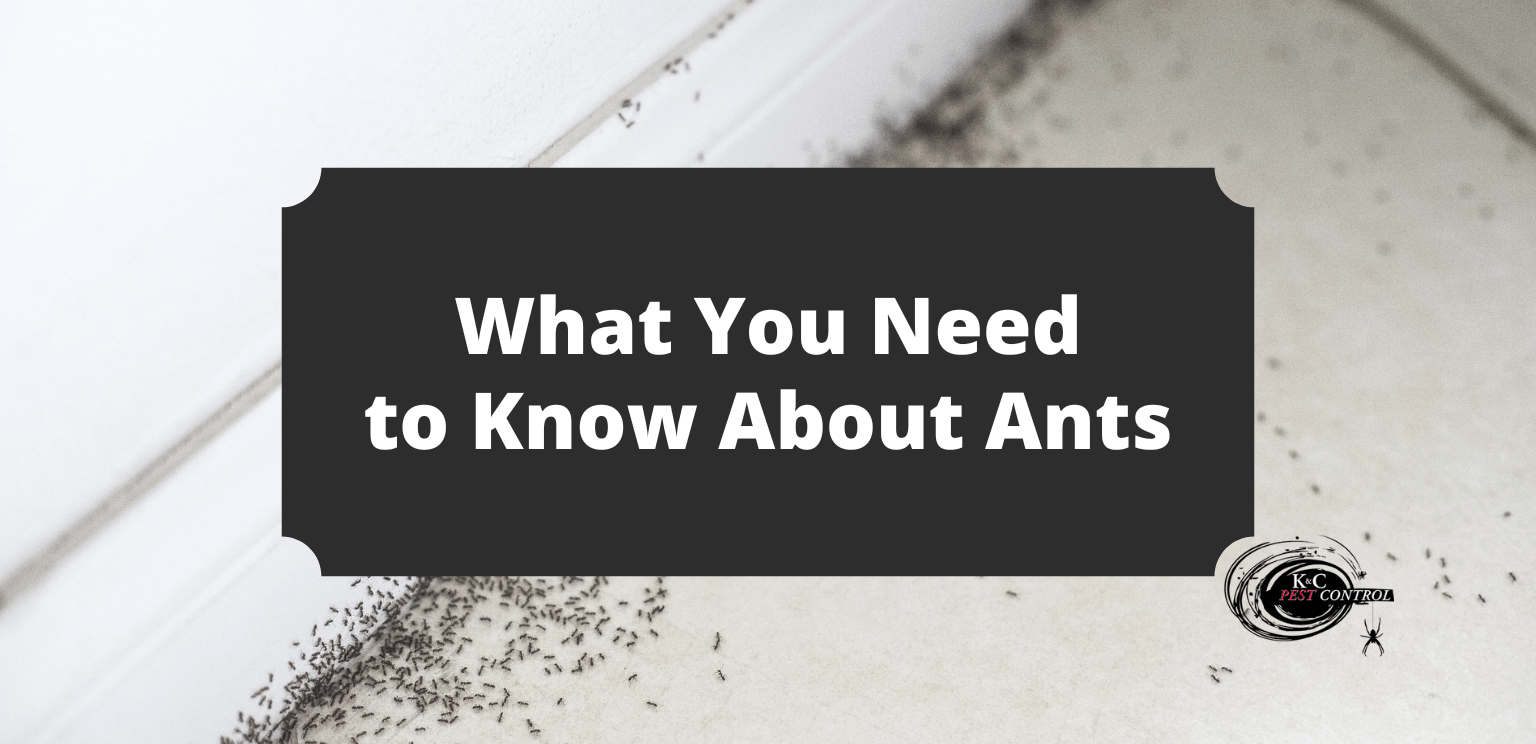
Ants are one of the most common pests in Wisconsin. As the weather warms up, you’ll begin to see mounds of sawdust or sand and the little pests crawling nearby.
Ant treatment is one of the most requested services at K&C Pest Control. Our team can identify the source of your ant infestation and prevent them from returning to your home or business.
Below are our tips on identifying the type of ant in your home or business and the common issues you’ll run into if you’re experiencing an ant infestation.
What Are the Most Common Ants in Wisconsin?
The most common ants that we receive calls for at K&C Pest Control are black carpenter ants and pavement ants.
Black Carpenter Ants
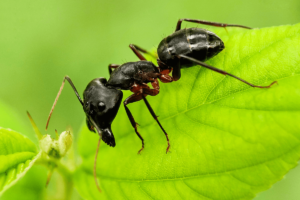
A black carpenter ant is about 1/8 to 1/2 inch in size. As the name suggests, they’re black in color — compared to the brown or red color that people typically think of when they think of ants.
In the spring months, they prefer to eat a protein-based diet. In the summer, they prefer carbohydrate-based foods. They’re especially fond of honeydew, syrup, honey, jelly, and other sweet foods.
Black Carpenter Ants are attracted to decaying wood, such as firewood, porches, and window sills, and will establish nests in these areas. Because their home is made of wood, they’ll leave behind sawdust or wood shavings. This is one of the main signs that you have a carpenter ant infestation in your home or business.
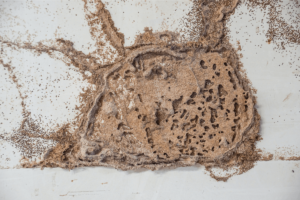
Pavement Ants
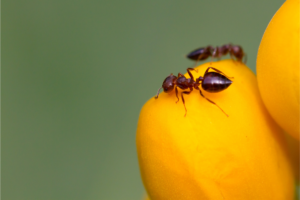
Unlike black carpenter ants, pavement ants are smaller in size. They’re about 1/16 to 1/8 inch.
Pavement ants aren’t picky when it comes to their diet. They’ll eat almost anything — seeds, fruit, potatoes, and insects.
They normally make their homes in the soil or under driveways, sidewalks, patios, and pavement slabs. This is where they get their name! In the spring and summer, you’ll see mounds of sand and dirt which is the main entrance to their nest.
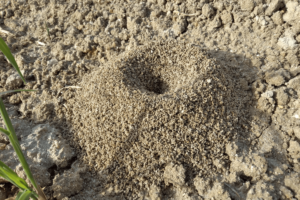
Are Ants Dangerous to Humans?
Black carpenter ants aren’t harmful to humans and pets and will usually not bite. If they do bite, it will result in a burning sensation that will not last longer than a few minutes.
Pavement ants will sting if they’re provoked but are typically calm and unlikely to hurt you or your pet.
That said, ants can spread bacteria throughout your house and they’ve been known to cause allergic reactions. It’s always best to address and prevent an infestation as soon as possible.
How do Ants Enter Your Home or Business?
Ants can enter through holes, cracks, gaps in your foundation, window sills, or other small openings you haven’t yet noticed. If a tree branch is touching your home or business, ants can also use that branch to get inside the building.
Once you see one ant, more are likely to follow. Ants leave behind a scent, or pheromones, that other worker ants will follow to find food. These pheromones will help the ants to communicate where there’s food or if there’s danger.
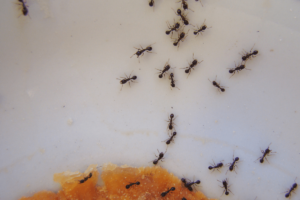
Can Ants Harm Your Home or Business?
Yes! Ants can cause damage to your home and business as they create their nests.
Black carpenter ants will chew through wood beams to create space for nests. Pavement ants will tunnel under concrete slabs and patios, moving the sand.
In extreme cases, as the ants build their homes, the foundation or structure of your home can become unstable.
What’s the Most Effective Way to Get Rid of Ants in the House?
There are some DIY vinegar sprays you can use to saturate ant trails and to kill them if they’ve invaded your home or business. You can also use chemical ant spray, bait stations, or ant liquid.
However, young children and pets are often attracted to these ant traps. They can disturb the traps, making them ineffective, or potentially get sick or injured from ingesting them. K&C Pest Control makes sure to place these stations out of the way of pets and children.
Contact the professionals at K&C Pest Control to examine your home or business and identify where ants enter and how the problem must be treated. Our team can rid your home or business of the ants that are already inside and prevent them from entering the building in the future. Contact our ant control experts today!
